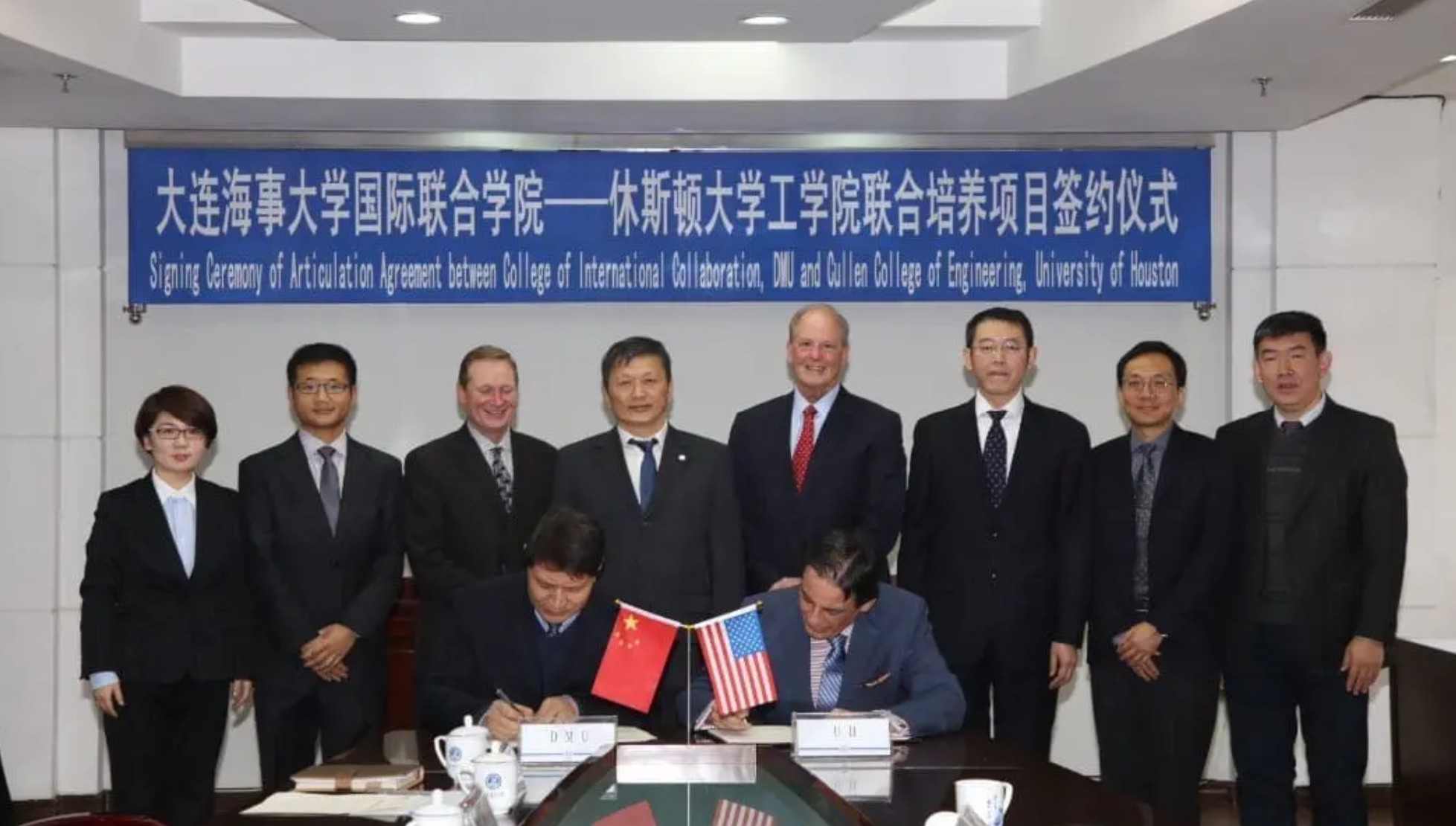University of Houston's Links to Chinese Military

By Robert Montoya | Texas Scorecard | September 15, 2025
A new congressional report found that the University of Texas at Arlington and the University of Houston have concerning connections with the Chinese military-industrial complex.
The U.S. Congress’ Select Committee on the Chinese Communist Party and the Committee on Education and the Workforce published the 39-page report that found both universities have partnerships with Chinese institutions that “pose serious national security risks.”
The University of Houston partners with Dalian Maritime University to run the Houston International Institute, a joint engineering operation.
The committees found this problematic. DMU is supervised by a “Chinese defense-focused government agency and partners with Chinese defense conglomerates on engineering research.” The university has also conducted research funded by China’s Ministry of State Security and Central Military Commission.
The report notes that the Houston International Institute was one of multiple previously identified “high-risk joint institutes” in which American universities were participating. It also states that despite warnings from congressional committees, the universities “have failed to act.”
A University of Houston spokesman called the report “inaccurate,” saying, “The UH-Dalian Maritime University International Institute is an undergraduate dual-degree program focused exclusively on engineering education. It does not involve research activities of any kind or the exchange of intellectual property.”
A spokesman for Congressman John Moolenar (R–MI), chairman of the Select Committee on the Chinese Communist Party, disagreed. “The University of Houston’s program with Dalian Maritime University is a Chinese government–approved joint venture. That is why the Select Committee raised concerns,” the reply read. “Even if billed as ‘undergraduate only,’ such arrangements create avenues for influence and risk.”
The response pointed out that, leading up to the creation of the joint institutes, UH and DMU launched broader cooperation. This included an “international union of submarine engineering research,” which, Moolenar’s spokesman noted, shows that “the ties often go beyond classroom teaching.”
The second Texas-related issue the committee report identified is a “dual-degree program” between the University of Texas at Arlington and Xi’an Jiaotong University.
According to the Australian Strategic Policy Institute, Xi’an Jiaotong University is a “high risk” university that has major defense labs and is a known recruiting ground for hackers.
The committee report found that both Texas universities are working with Chinese universities that host “high-risk defense entities” and are connected with intelligence or military end use or work with the Chinese military-industrial complex.
Neither the University of Texas at Arlington nor the University of Texas System responded to a request for comment before publication.
The Threat
In its 2025 annual threat assessment, the U.S. Office of the Director of National Intelligence designated China as a national security threat.
The committee report revealed the unique national security risk posed by joint institutes and joint degree programs.
Joint institutes, such as UH’s partnership with DMU, are operations based in China that bring together American and Chinese institutions—but these are not typical academic partnerships.
“They are under the thumb of the CCP. They operate under PRC [People’s Republic of China] law; are run by Chinese-majority boards and have Party presence in leadership; and are aligned with the CCP’s national strategy, including its military buildup,” the report stated. “Chinese government funding dominates these joint institutes, and the use of funds is restricted by law to align with CCP goals. Curriculum and research prioritize CCP-defined goals—especially in military-relevant science and technology fields.”
Lastly, the report found that American institutions agree to restrictions on academic freedom, speech, and governance independence imposed by China.
Joint degree programs are no less harmful.
“Instructional programs—when delivered at scale—grant sustained access to U.S. expertise, content, and institutional resources,” the report noted. “These programs operate under PRC law, prioritize Chinese students, and often leverage the brand and technical strength of federally funded U.S. universities.”
The committee was unequivocally firm in its conclusion.
“These partnerships must end.”
Academic Security
American higher education as a whole, however, is ignoring the threat. “While some leading U.S. universities have shuttered their joint institutes with Chinese universities, many others have doubled down on risky partnerships with China,” the report stated.
In Texas, these threats have become more pronounced.
Last month, a Chinese national and former UT-MD Anderson Cancer Center researcher was charged with stealing sensitive data. Days later, analysis from research security firm IPTalons raised questions about research collaborations at UT-MD Anderson.
On September 8, a congressional report found that researchers from two other University of Texas campuses had worked with Chinese-military linked academics.
In 2025, Texas state lawmakers passed the research security law House Bill 127, effective as of September 1. The law creates a Texas Higher Education Research Security Council to oversee university systems’ protection.
State Rep. Terry Wilson (R–Georgetown), the law’s author, did not respond to a request for comment before publication.
IPTalons CEO Allen Phelps has warned that universities are taking “an academic approach” to research security, writing papers but not taking preventive measures. “Research security is not an academic exercise,” he said.
Meanwhile, the U.S. Congress’ Select Committee on the Chinese Communist Party continues its investigation, which includes an examination of the China Scholarship Counsel and student visa pathways. The report states that these, combined with joint institutes, “illustrate a coordinated strategy by the CCP” to use American institutions to train Chinese talent, absorb American research, and “convert that knowledge into military and economic advantage. Joint institutes are just one vector—the problem is systemic.”
Texas Scorecard will continue to examine research security within Texas’ higher education institutions. If you or anyone you know has relevant information, please contact our tip line: scorecardtips@protonmail.com.
Robert Montoya
Born in Houston, Robert Montoya is an investigative reporter for Texas Scorecard. He believes transparency is the obligation of government.